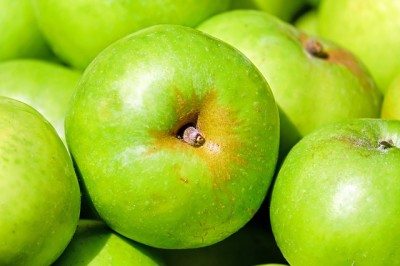 ShopRite, operating more than 260 supermarkets throughout New York, New Jersey, Pennsylvania, Connecticut, Delaware and Maryland, announced that it will officially celebrate the 10th Anniversary of its in-store Registered Dietitian program with a series of events, giveaways, health and wellness workshops, cooking demonstrations and more.
ShopRite, operating more than 260 supermarkets throughout New York, New Jersey, Pennsylvania, Connecticut, Delaware and Maryland, announced that it will officially celebrate the 10th Anniversary of its in-store Registered Dietitian program with a series of events, giveaways, health and wellness workshops, cooking demonstrations and more.
The event kicks off Sept. 10 and runs through Sept. 19 at participating store locations. Event calendars are available at www.shoprite.com/health-events.
Ten years ago, ShopRite launched its in-store Registered Dietitian program to help shoppers make healthier food choices in the aisles. Today, with more than 130 registered dietitians servicing nearly 140 locations across the Northeast, ShopRite’s experts in health and wellness provide complimentary services such as one-on-one consultations, supermarket tours, support groups, weight management classes, cooking classes, product samplings and much more.
Additionally, ShopRite’s in-store registered dietitians work in the communities they serve by partnering with hospitals, doctors, libraries, schools, universities and nonprofit organizations to conduct free workshops and seminars.
“When ShopRite launched its in-store Registered Dietitian program a decade ago, the idea of having a full-time health professional offering nutritional advice in the supermarket aisles was practically unheard of,” said Natalie Menza, health and wellness manager, and the first corporate dietitian hired by ShopRite. “We are extremely proud of the difference that our registered dietitians have made in the lives of our shoppers. Whether assisting with weight loss goals, changes in nutritional needs, helping to better understand food labels or simply finding a gluten-free option of their favorite snack, ShopRite’s goal is to educate and inspire our customers when it comes to their health and wellness needs—and we’re honored to be doing that within the communities we serve.”
Additionally, as health-focused education is the cornerstone of ShopRite’s health and wellness department, its in-store registered dietitians are setting the record straight on the top 10 most common health and nutrition-focused food myths, offering expert advice on what is real and what is simply lore.
Shoprite’s registered dietitians reveal the too 10 biggest food myths debunked
 1. YOU HAVE TO EAT LESS TO LOSE WEIGHT
1. YOU HAVE TO EAT LESS TO LOSE WEIGHT
While portion control is important when trying to maintain a healthy weight, you don’t have to starve yourself to shed pounds. In fact, dietitians agree that eating more often, but in smaller portions, keeps your hunger satisfied and can help you lose weight.
2. CARBOHYDRATES MAKE YOU FAT
Carbohydrates are an important part of a well-balanced diet, especially for those who have diabetes. While carbohydrates do raise your blood sugar, the key is to consume more whole-grain, minimally processed carbohydrates to help keep your blood sugars in check. This includes things like quinoa, beans, and whole fruit with the skin on.
3. EATING AT NIGHT IS BAD
Nutrition experts contend that all calories are the same—no matter what time you eat them. The only thing that matters is the total number of calories you ingest daily.
4. TABLE SALT IS BAD
By now it’s been pretty well documented that too much salt and sodium in our diets is unhealthy and could potentially lead to health issues down the road. However, most dietitians will tell you that a pinch of table salt added to a home-cooked, otherwise sodium-free meal isn’t going to push the needle of your daily sodium intake. When it comes to salt and sodium in our diets, it’s usually meals prepared in restaurants, fast food locations or highly processed foods that contain the high-levels of sodium that are dangerous for our diets.
5. FRESH FRUITS AND VEGETABLES ARE BETTER THAN FROZEN
Not true! These days, new technologies allows fruits and vegetables to be flash frozen at the peak of ripeness. In some cases, frozen produce is actually “fresher” than the “fresh” stuff that’s on the shelf.
 6. LOW FAT FOODS ARE ALWAYS BETTER
6. LOW FAT FOODS ARE ALWAYS BETTER
Without fat the body is unable to absorb the nutrients it needs to thrive. That’s why it’s more important to read food labels and search out those that provide “healthy fats,” such as avocado, coconut oil, fatty fish, cheeses and chia seeds.
7. EGGS RAISE CHOLESTEROL LEVELS
The body’s cholesterol levels are affected by particular saturated and trans fats. However, eggs contain very little saturated fat—only 1.5 grams of fat per large egg and zero amount of trans fat. Eggs contain 13 naturally occurring vitamins and minerals. So feel free to get your egg on!
8. KALE IS A MUST FOR A HEALTHY DIET
Kale-haters, take note. While this dark, leafy vegetable offers many valuable vitamins and minerals, there are plenty of other dark, leafy vegetables you can consume that offer much of the same nutrient values. And, you won’t have to feel like you’re eating the garnish.
9. HEALTHIER FOOD IS MORE EXPENSIVE THAN “REGULAR” FOOD
It does not have to cost a lot of money to eat better! For the best deals on fresh produce, shop weekly sales and look for seasonal varieties. Frozen and canned fruits and vegetables are also a great option, providing the same nutrients as fresh produce at a lower cost. Stock up on frozen fruits and vegetables with no added sauces or sugar, low-sodium or no added salt or canned in 100% juice.
TIP: by rinsing canned vegetables or beans under running water, you’ll remove some excess salt. For budget-friendly protein sources, try dried or canned beans, lentils, tuna or salmon in water, eggs and natural peanut butter. And don’t forget, a little planning goes a long way! Plan weekly menus around what’s on sale and don’t forget to use your ShopRite Price Plus Card for the best deals.
10. YOU CAN’T “GET HEALTHY” IN A SUPERMARKET
ShopRite has registered dietitians on staff who can answer customers’ questions regarding all their nutritional needs, educate shoppers about reading labels and making healthy food choices, counsel those with food allergies, and develop personalized meal plans. We are often asked about the challenges of eating healthy today.
The answer is in this metaphor for life—you can find good things and bad, but it becomes our responsibility to choose wisely. If we really open our eyes, the abundance of nutritious items available in nearly all sections of the supermarket like produce, seafood and even the frozen department, makes the choice a simple one.
 For more information on how ShopRite is celebrating the 10th Anniversary of its in-store Registered Dietitian program, contact your local store or visit www.ShopRite.com.
For more information on how ShopRite is celebrating the 10th Anniversary of its in-store Registered Dietitian program, contact your local store or visit www.ShopRite.com.


















